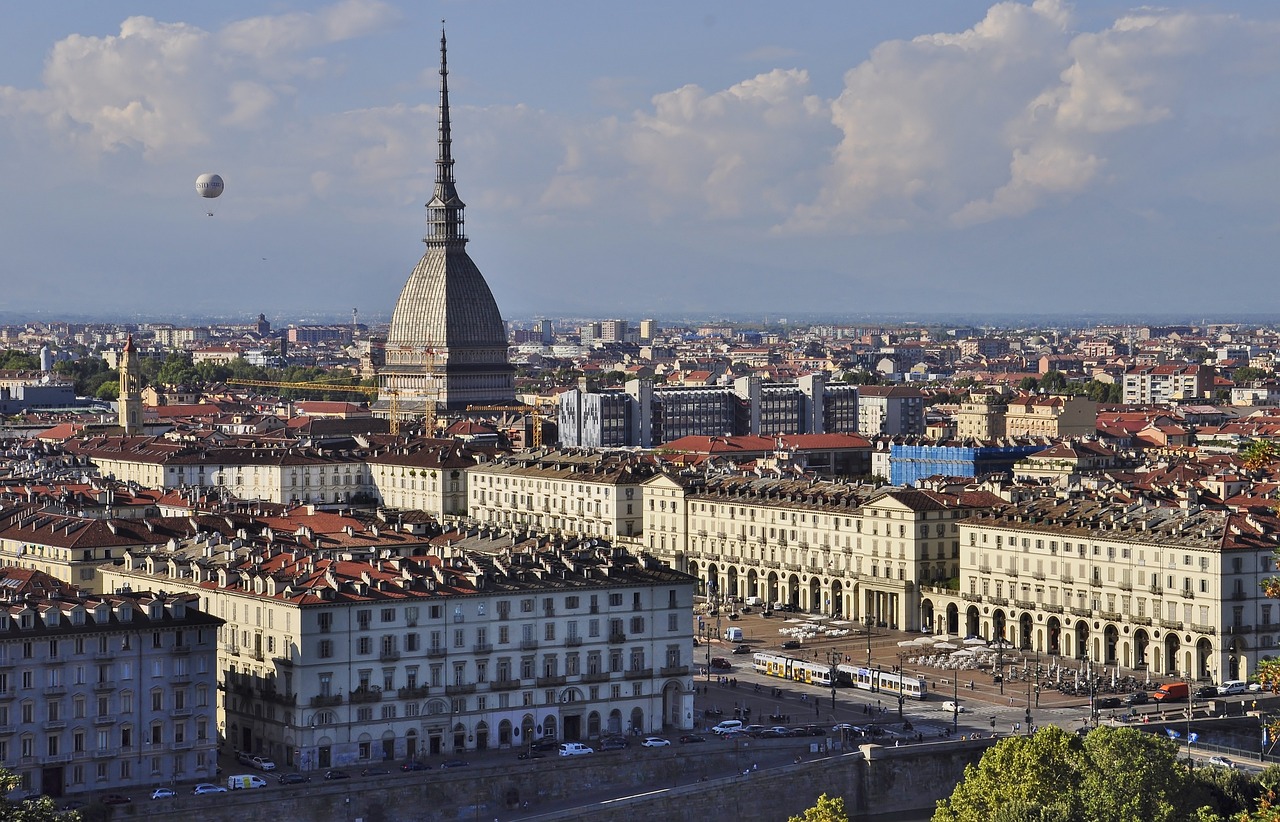Turin, or Torino in Italian, is a city steeped in history, culture, and innovation. Nestled in the shadow of the majestic Alps, this northern Italian metropolis is a treasure trove of Baroque architecture, culinary delights, and rich traditions. Whether you’re an art lover, a foodie, or a history enthusiast, Turin offers a compelling blend of the old and the new.
In this article, we’ll explore every facet of Turin, from its cultural heritage to its thriving modern industries, providing a complete guide to this remarkable city.
1. Introduction to Turin
Turin is the capital of the Piedmont region, located in northwestern Italy. It is renowned for its elegant architecture, bustling piazzas, and a vibrant lifestyle that perfectly blends tradition with modernity. The city lies along the River Po and offers stunning views of the nearby Alps, making it a scenic as well as cultural gem.
2. Historical Significance of Turin
Turin’s history dates back to its founding as a Roman military camp in 28 BC. Over centuries, it evolved into a seat of power for the House of Savoy, playing a pivotal role in the unification of Italy. As the first capital of unified Italy in 1861, Turin holds a special place in the nation’s heart.
3. Architectural Marvels
Turin is famous for its Baroque and Renaissance architecture. Some must-see sites include:
- Palazzo Madama: A blend of medieval and Baroque styles.
- Mole Antonelliana: The iconic building that houses the National Cinema Museum.
- Turin Cathedral: Home to the Shroud of Turin.
4. Museums and Cultural Highlights
Turin boasts world-class museums that reflect its artistic and historical richness:
- Egyptian Museum: One of the largest collections of Egyptian artifacts outside Cairo.
- Museo Nazionale del Cinema: A captivating exploration of film history.
- GAM (Gallery of Modern Art): Showcasing contemporary Italian art.
5. Turin’s Culinary Scene
The cuisine of Turin is a celebration of flavors, rooted in Piedmont’s rich culinary traditions:
- Bagna Cauda: A warm anchovy and garlic dip served with vegetables.
- Gianduja Chocolate: A heavenly blend of chocolate and hazelnut.
- Barolo Wine: The region’s prized red wine.
6. The Shroud of Turin
The Shroud of Turin is a linen cloth believed by many to bear the image of Jesus Christ. This revered artifact is kept in the Turin Cathedral and attracts millions of visitors during its rare public exhibitions.
7. Parks and Natural Attractions
Turin is not just about urban beauty; it also offers green spaces and natural retreats:
- Parco del Valentino: A historic park along the River Po.
- Superga Basilica: Located on a hill with panoramic views of the city.
- Monte dei Cappuccini: Perfect for scenic hikes and sunset views.
8. Industry and Innovation
Turin is often called the “Detroit of Italy” due to its automotive history, spearheaded by Fiat. The city is also a hub for aerospace and technology industries, contributing significantly to Italy’s economy.
9. Shopping in Turin
From high-end fashion to charming markets, Turin is a shopper’s paradise:
- Via Roma: For luxury brands like Gucci and Prada.
- Porta Palazzo Market: Europe’s largest open-air market.
- Quadrilatero Romano: A hotspot for unique boutiques and artisan shops.
10. Festivals and Events
Turin comes alive with vibrant festivals and events:
- Cioccolatò: An annual chocolate festival showcasing Turin’s sweet traditions.
- Holy Shroud Exposition: Held periodically, drawing pilgrims worldwide.
11. Sports and Recreation
Turin is synonymous with Juventus, one of Europe’s top football clubs. Additionally, its proximity to the Alps makes it a gateway for winter sports like skiing and snowboarding.
12. Transportation and Accessibility
Turin is well-connected via its modern transportation system:
- Metro and Trams: Easy navigation within the city.
- Turin Airport: Connecting Turin to major European destinations.
- Rail Links: High-speed trains to Milan, Florence, and beyond.
13. Day Trips from Turin
Turin’s location makes it a perfect base for exploring the Piedmont region:
- Langhe and Monferrato Vineyards: Renowned for world-class wines.
- Sacra di San Michele: A mystical abbey perched on a hilltop.
14. Best Accommodations in Turin
Turin offers a wide range of accommodations to suit every budget:
- Luxury: Principi di Piemonte, Turin Palace Hotel.
- Mid-Range: Hotel Victoria, NH Torino Centro.
- Budget: Open011, Bamboo Eco Hostel.
15. Turin’s Role in Italian Culture
Turin has left an indelible mark on Italian literature, cinema, and art. As the birthplace of notable authors and filmmakers, the city continues to inspire creative minds worldwide.
Conclusion
Turin is a city that promises an unforgettable experience with its mix of cultural treasures, natural beauty, and modern innovation. Whether you’re drawn to its historical significance, culinary delights, or the charm of its piazzas, Turin never fails to enchant.
Frequently Asked Questions
- What is Turin best known for?
Turin is famous for its Baroque architecture, automotive legacy, and being the home of the Shroud of Turin. - When is the best time to visit Turin?
Spring (April to June) and autumn (September to October) offer pleasant weather and vibrant events. - How do I get to Turin?
Turin is accessible by air, rail, and road, with excellent connections to major Italian cities. - What food is Turin known for?
Gianduja chocolate, Barolo wine, and traditional dishes like bagna cauda are Turin’s culinary highlights. - Are there English-speaking guides available in Turin?
Yes, many tour operators and museums offer English-speaking guides. - Can I see the Alps from Turin?
Yes, Turin offers stunning views of the Alps, especially on clear days from spots like the Superga Basilica.


